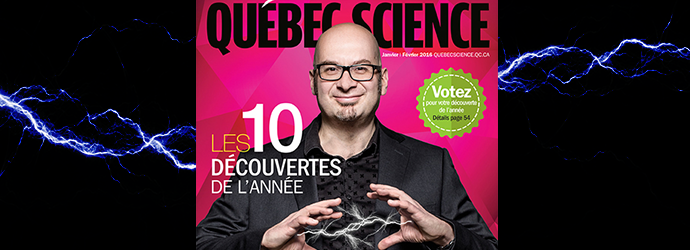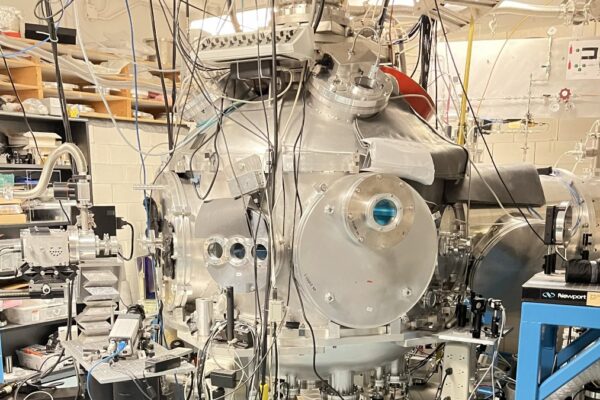- Awards and Distinctions
-
YOU ARE
- Community member
- Future Student
- Student
- Professor
- Alumni
- Media
- Guidance counsellors
- INRS retiree
- Contact Us
- Newsroom
- Careers
- FR
-
Studies
We teach the next generation of researchers to develop scientific, social, and technological innovations.
-
Research
We find solutions through interdisciplinary research and industry or public and community partnerships.
-
INRS
We play an active role in Québec's economic, social, and cultural development.
The use of lasers to guide an electrical discharge around obstacles: this breakthrough by Professor Roberto Morandotti and his team made Québec Science magazine’s list of the ten biggest discoveries in 2015. In fact, the physicist who has tamed short-lived lightening bolts is featured on the front page of the January/February issue.
This scientific first, accomplished at the INRS Centre Énergie Matériaux Télécommunications’s Advanced Laser Light Source, paves the way for innovative applications in micromachining, pollution control, and electronic jamming.

The electrifying breakthrough has sparked considerable interest on the part of the international scientific community, which has always dreamed of controlling the trajectory of lightning bolts. It also caught the attention of prestigious media such as Science, Le Monde, and the Daily Mail, to name a few.
Professor Morandotti’s research findings were published in the June 2015 issue of Science Advances in the article “Laser-assisted guiding of electric discharges around objects.” Researchers Matteo Clerici, Yi Hu, Philippe Lassonde, Carles Milián, Arnaud Couairon, Demetrios N. Chrisodoulides, Zhigang Chen, Luca Razzari, François Vidal, François Légaré, Daniele Faccio, and Roberto Morandotti are the authors of the article.
2015 Discovery of the Year: People’s Choice Award
Québec Science is again inviting the public to vote on which of the 10 jury panel selections is the biggest discovery of the year. The People’s Choice Award will go to the discovery that receives the most votes by February 18, 2016. Vote at www.quebecscience.qc.ca/10-decouvertes-2015.
Supplement : video Can Humans Control Lightning?
You may also like

Share


